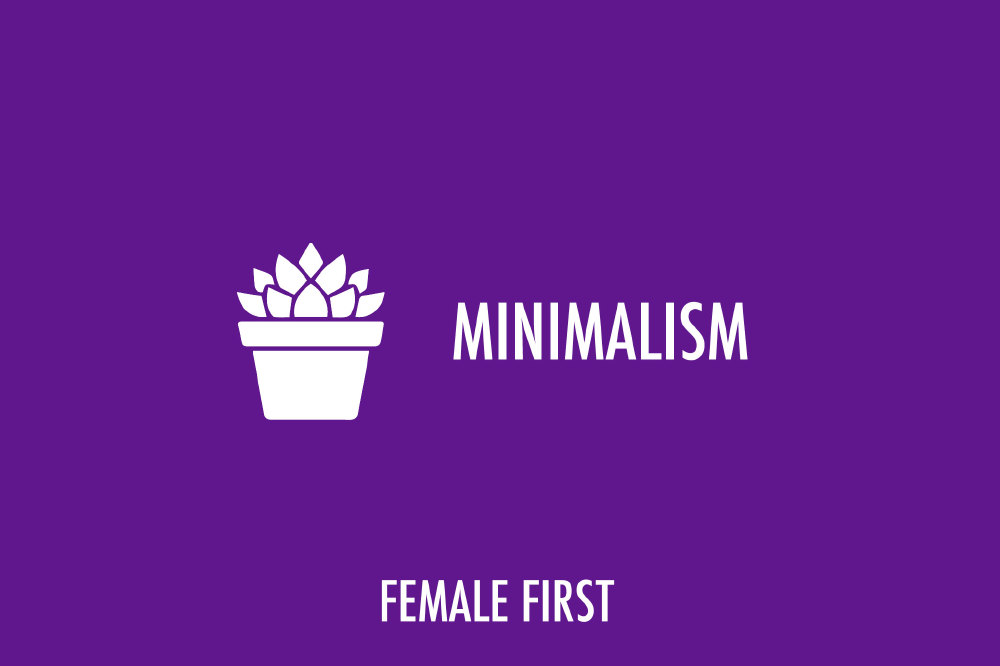Some people might be under the impression that once you have minimised, that is it- you are done for the rest of your life. Sadly, that isn’t the case, minimalism is perpetual and therefore, your space and the things in it should always be under constant review. Here’s why…

Minimalism on Female First
Tastes change: What you keep now might bring you no joy or will have no use in the future. Don’t ever take for granted that your tastes might alter as you get older. Humans are always evolving and so are the things that serve them so be prepared to dislike things you once cherished- it’s human nature to change your mind.
Circumstances change: People go through different stages in their life which means their circumstances change too. For instance, something may have served you well when you were a student but you now have no use for it now you’ve left education.
Perhaps you had something that was invaluable when you were in a previous job but it no longer has any relevance to your new role.
Maybe you lived with a partner and now live alone following a separation, in which case, you only need to cater for yourself now.
Different circumstances flow in and out of your life whether you want them to or not and with this comes a need for certain things and not for others.
Bodies change: You can rest assured that you won’t have the same wardrobe in years to come as the one you have now. People’s bodies fluctuate because of weight loss and gain, pregnancy, fitness levels and injury meaning their wardrobe will have to adapt along with them when the time comes.
Out with the old and in with the new. Better to have a wardrobe of things that fits you now rather than hunting for the items that fit among those that are no longer appropriate.
Spaces change: Moving house is the most common reason for a change in space- moving from a large area to a smaller one being the main motivator for evaluating the quantity of things you own. Even if you are moving to a larger home, a NEW space requires different things too so you will need to decide what fits and what doesn’t anymore.
An example could be that you want a double bed instead of a single one because you are moving in with a partner and it would be counterproductive to keep both, so the smaller one would be removed to accommodate the bigger one.
The day to day flow of things coming into your home never stops: If you minimise and then neglect everyday tasks like processing post and packages and recycling- your place will soon become cluttered. These small daily duties need to be completed or they will pile up just like anything else.
Imagine if you minimised and then sat back and neglected to discard the newspaper that’s delivered to your house every day- your space would fill up fast.
Dietary preferences change: Intolerances, reactions and allergies can crop up at any point in life, so something you once enjoyed might now make you feel ill. In which case, these items will need to be removed to make way for the things you can eat without consequence. Or in the event of there being no substitute, you may simply have to let go of this foodstuff altogether.
Feelings change: You may have hung onto something from a deceased relative because your feelings were too raw to contemplate anything other than keeping the item that once belonged to them. Once that initial grief has passed, you may find that you never really liked the item in the first place or feel that it would serve someone else better.
You may have things now that once pertained to a meaningful partnership, but now that has ended, you feel that you can let them go as you don’t want to remember that person anymore.
Minimalism is a lifetime commitment- there is no finish line. Just like anything else that is worth doing- it requires constant attention and focus but well worth the effort.
Happy decluttering!
For more articles on minimalism, click HERE
Tagged in Minimalism

